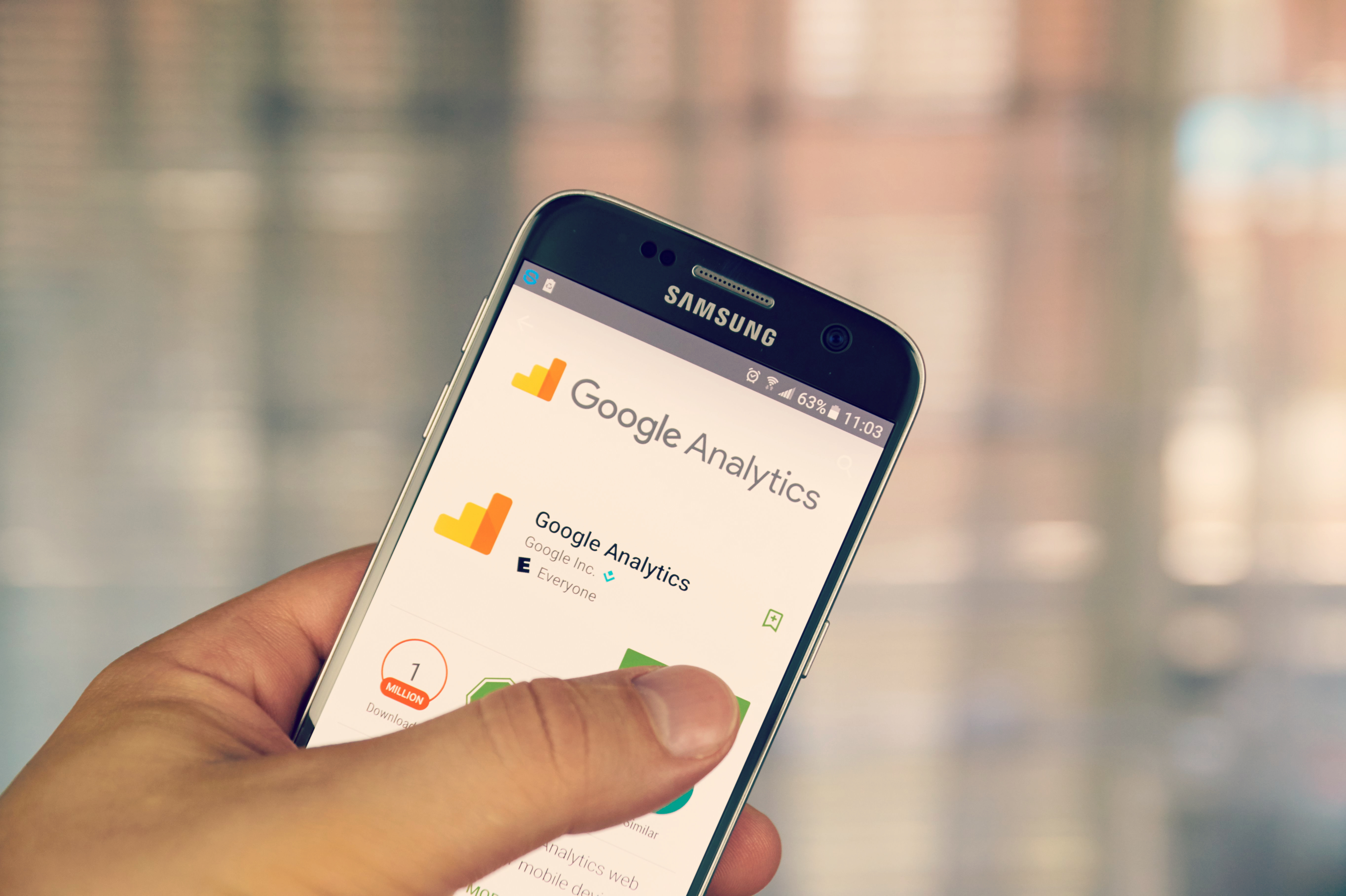As a small business owner, you understand the importance of keeping up with the latest tools and technologies to stay ahead of the competition, while also keeping the clients happy, trying to master the social media algorithms, building your sales pipeline, doing the accounts. Fun, isn’t it 😉
If you’ve got a website, one specific tool plays a crucial role in your online marketing strategy, and that tool is Google Analytics.
What is Google Analytics and what can it do for my business?
Don’t worry, we will.
To keep it simple, it’s a piece of code that you install on your website that will help you understand and analyse your website’s performance, user behaviour on said website, and your overall online presence.
And it’s free.
Once installed on your website, you’ll be able to:
Track website performance
Google Analytics allows you to monitor the metrics related to your website’s performance, such as the number of visitors, page views, average session duration, bounce rate (how quickly people exit your website, and loads more. These metrics help you understand how well your website is performing and identify areas that need improvement. On that note…
Understand user behavior
By analysing the data collected by this magic bit of code, you’ll start to see how users interact with your website, which pages they visit, how long they stay, and the actions they take. This is like gold dust. Page not working, optimise it. Page working brilliantly? Do more of them then. This is the stuff that will allow you to increase your conversions. That is, have a website that actually brings you leads, rather than it sitting there looking pretty and costing you to host it.
Measure the effectiveness of your marketing and social media campaigns
Google Analytics enables you to track the performance of your online marketing campaigns, such as social media, email marketing, and paid advertising, like if you boosted a post on Facebook for example. By measuring the effectiveness of these campaigns, you can determine which marketing channels are driving the most traffic, conversions, and revenue, allowing you to drop the duds and scale the good(e) ones.
Identify your target audience
Google Analytics provides demographic and geographic data about your website visitors, helping you understand your target audience better. This information can be used to create more targeted marketing campaigns and tailor your website’s content to better resonate with your audience. Dave from Dudley, aged 55 and ¾, will get EXACTLY the kind of content that makes his thumb stop scrolling and start buying. Nice one, Dave.
Improve your SEO
By identifying the keywords and search queries (what people put into Google to find you) that drive traffic to your website, Google Analytics can help you improve your search engine optimization (SEO) efforts. This can lead to higher search engine rankings, increased organic traffic, and ultimately, more conversions and revenue. Booooom.
Inform website design and content
The insights gained from Google Analytics can help you make informed decisions about your website’s design, layout, and content. By understanding what works and what doesn’t, you can create a more engaging and user-friendly website that drives better results. And one that still looks pretty.
That all sounds great. Where do I sign?
24 secs, we’ll come onto that. You need to know something else first.
Spoiler alert. Google has introduced a new version of its analytics platform, Google Analytics 4 (GA4) and they want everyone to migrate over by the 1st of July. Let us share the benefits of migrating to GA4, and don’t worry, we’ll keep it jargon-free.Why Migrate to GA4?
GA4 comes with several enhancements that make it a more powerful and user-friendly tool for small business owners. They say you’ll get:
Improved Data Collection and Reporting
GA4 uses advanced machine learning algorithms to provide more accurate and actionable insights into user behavior, enabling you to make better-informed decisions about your marketing strategy. We say: we do love an algorithm.
Enhanced Privacy Controls
GA4 offers improved privacy settings that help you comply with evolving data protection regulations, such as GDPR and CCPA, without sacrificing the quality of your data. No GDPR jail for you, then. Always a bonus.
Cross-Platform Tracking
GA4 is designed to track users across multiple devices and platforms, giving you a more comprehensive view of your audience’s behavior. Think of it as ethical stalking 😬
Integration with Google Ads
GA4 seamlessly integrates with Google Ads, allowing you to create more targeted ad campaigns based on your analytics data. Now this is actually really important. Wasted budget is money off your bottom line. Never good(e).
Future-Proofing
Google never goes backwards. New features and improvements will be introduced to this platform, making it essential to stay up-to-date with the latest version.
Got it. So now what’s next?
The first thing you’ll want to do is check which version of Google Analytics you’ve got running before you do anything else.
By now, hopefully we’ve convinced you that Google Analytics is an essential tool for any small business owner or marketer looking to make data-driven decisions and optimise their online presence (and grow their business and make more money). Double boom.
1st July isn’t that long away. Check your website now and then we can give you a helping hand migrating over to GA4.


